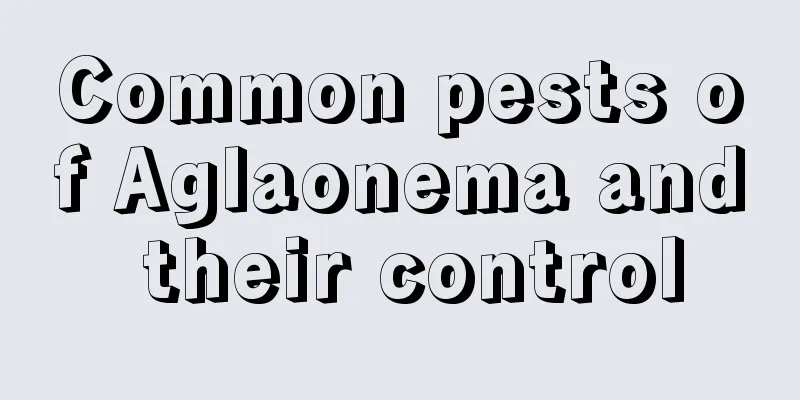Common pests of Aglaonema and their control

Pests of Fagus sylvatica - Red spiderRed spider mites are a common pest of the Aglaonema plant. They mainly suck the sap of the Aglaonema plant. In serious cases, spots will appear on the leaves, which will gradually turn yellow and fall off, affecting the growth of the Aglaonema plant. If the Aglaonema is infested with red spider mites, it is necessary to promptly remove the dead leaves and fallen leaves and burn them, or you can spray pesticides to kill the red spider mites. It should be noted that red spider mites themselves have strong resistance to pesticides, so when using pesticides, they need to be sprayed in time and changed frequently. Commonly used agents include dichlorvos and omethoate solution. In addition, natural enemies can also be used for prevention and control. Pests of Aglaonema ovata - AphidsAphids are also a common pest of the Aglaonema plant. Aphids will also suck the juice of the Aglaonema plant, causing the leaves of the Aglaonema plant to shrink and curl, and in severe cases, the leaves will wither or even die. Aphids can sometimes cause sooty mold. If you find aphids on your hollyhock, if the number is small, you can flush them away when watering. You can also use natural enemies for prevention and control, such as ladybugs. If the number of aphids is relatively large, you can prepare some safe pesticides yourself, such as tobacco leaf water. You can also use special insecticides, such as spraying a 1000-fold solution of DDT emulsifiable concentrate for treatment. Pests of Aglaonema rubrum - Red wax scaleThe adults and nymphs of the red wax scale often parasitize on the branches and leaves of the Aglaonema plant and suck the sap of the plant. It will cause the plants of Aglaonema to turn black and shrink, or even die, and may also cause soot disease, which is very harmful. In the early stages of the red wax scale pest, the pests can be eliminated and the infested leaves can be cut off and destroyed. Natural enemies can also be used for prevention and control. If you spray medicine, it will also have a certain effect. |
<<: Common Pests of Crape Myrtle and Their Control Methods
>>: Cherry Blossom Pests and Their Control
Recommend
Plum blossom pruning method
1. Shortening branches When the tree is young, so...
Oranges' growing environment and local conditions
Orange growth environment and conditions Oranges ...
Cultivation methods and precautions of Photinia fraseri
Planting soil for Photinia fraseri The potting so...
How to deal with the withered white chrysanthemum
Treatment method of white crystal chrysanthemum a...
Can basil be grown hydroponically?
Can basil be grown hydroponically? Basil can be g...
How to prune roses
Rose pruning time Roses need to be pruned several...
How to care for wine bottle orchid in winter
1. Ensure the temperature If you want the bottle ...
The Clivia I keep at home is dying. This is how I can save it.
Clivia This is how to treat rotten roots of Clivi...
Can ginkgo trees be planted in the yard?
Can I plant a ginkgo tree in my yard? Ginkgo tree...
How to cultivate the star beauty of the spiral leaf
How to grow the star beauty of the spiral leaf Th...
What to do if Dendrobium leaves fall off
1. Reduce temperature difference 1. Reason: The t...
10 popular fruit-bearing plants to bring you good fortune and wealth
Holly After the North American holly leaves fall,...
Maintenance methods of Photinia fraseri in winter
Photinia fraseri should be protected from freezin...
Winter tulip planting methods and precautions
Tulips are famous for their colorful colors and e...
How to propagate bird's nest fern
How to propagate bird's nest fern Spore repro...









